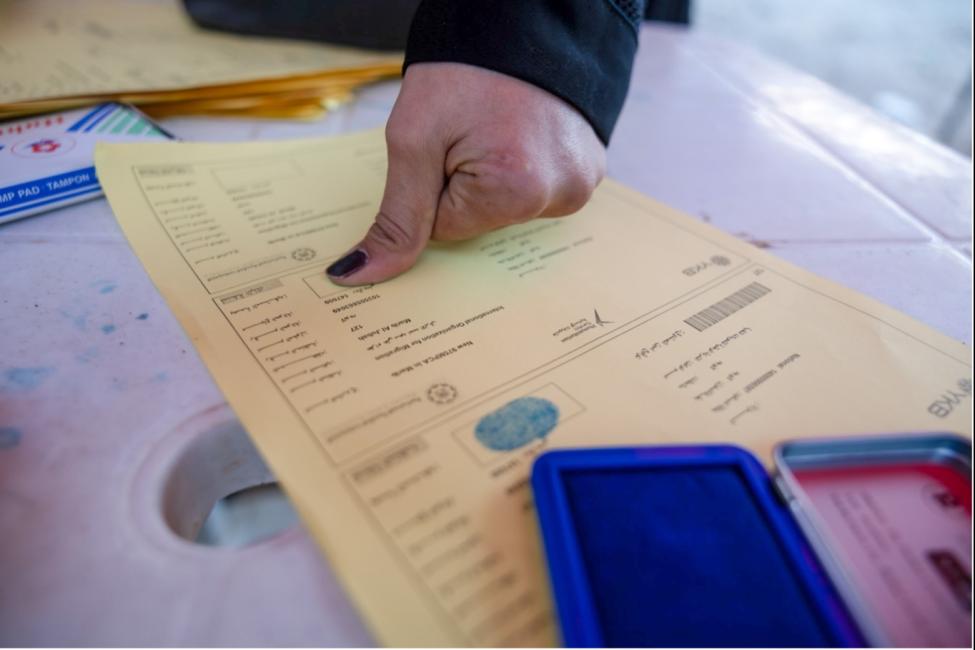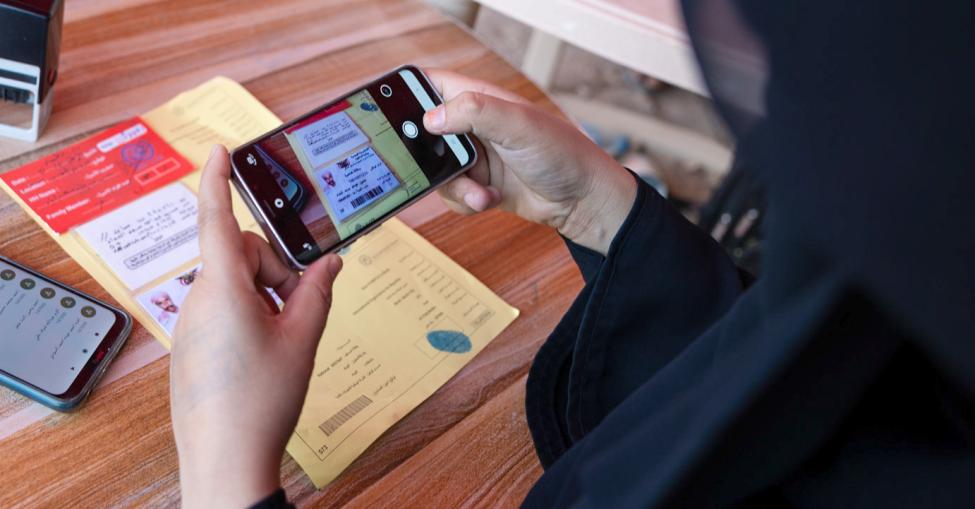-
Who we are
WHO WE AREIOM is the leading inter-governmental organization promoting humane and orderly migration for the benefit of all, with presence in over 100 countries. IOM has been active in the Middle East and North Africa from the early 1980s.
About
About
IOM Global
IOM Global
-
Our Work
Our WorkAs the leading inter-governmental organization promoting since 1951 humane and orderly migration, IOM plays a key role to support the achievement of the 2030 Agenda through different areas of intervention that connect both humanitarian assistance and sustainable development. Across the Middle East and North Africa region, IOM supports States in realizing their national priorities and in fulfilling their international commitments in the areas of migration, displacement and mobility.
Cross-cutting (Global)
Cross-cutting (Global)
- Where we work
- Take Action
- Data and Resources
- 2030 Agenda
Ma’rib – When intense fighting approached Fandah’s home in Al Jubah in early October, she knew she had no choice but leave her home in search of safety. The 43-year-old teacher fled along with thousands of people to a displacement site on the other side of Ma’rib governorate, leaving behind her home and all her family’s possessions.
“We were among the last people who left Al Jubah. We did not want to flee. We kept our hopes up that the situation would improve, but one day the heavy clashes and explosions around us became too much. We left everything and fled,” recalled Fandah.
In the weeks leading up to Fandah’s displacement, the conflict had also closed the doors of schools in the area, preventing many students from going to school and putting teachers like her out of work.
Fandah and her family settled in a displacement site, one of the many displacement sites spread across Ma’rib. They used the money they had left to buy plastic sheets and wood to make a small shelter for their eight-member family.
Like thousands of displaced families, she found herself struggling to provide for her family’s most basic survival needs.
“We used to have a real house and a real life. I was working as a teacher and my children used to go to school. Now that life we once had has been destroyed,” Fandah added.
”In the blink of an eye, we found ourselves here with nothing. Becoming displaced is the hardest situation I’ve faced in my life.”
Since conflict broke out in the area in 2015, Ma’rib governorate has become host to Yemen’s largest displaced population. In the last few months, renewed fighting has uprooted approximately 45,000 people – many of whom were already displaced – within or to the governorate.
Now, new waves of displacement are straining already over-stretched resources and leaving thousands of families with nothing.
Within a few weeks of the fighting that began to escalate in September, the International Organization for Migration (IOM) initiated a cash distribution programme to rapidly provide displaced people with the means to start over.
“Cash distribution is a flexible means of humanitarian aid which allows recipients to use the funds for their unique and most pressing needs such as rent, health care or supplies for their families,” said Manal, IOM’s Cash-Based Intervention Programme Assistant.
“Those who receive cash assistance can decide how to the spend the money according to their own priorities,” added Manal.
Two weeks after Fandah reached the site where she found refuge, she was directed to one of IOM’s cash distribution centers to receive cash assistance.
For her family, this assistance will help them to supply their shelters with required items and to buy clothing for their six children.
“Life is difficult and the costs of items we need to survive are rising every day. We used to run out of money every now and again, but at least then we had a house of our own and we were among our people who could help us out,” said Hussein, Fandah’s husband.
“Now that we are displaced, the hardship we face has multiplied.”
Inflation of the Yemeni currency has caused a devastating economic downturn. As a result, families like Fandah’s have resorted to reducing their meals to save money or taking on debts from relatives.
“When we used to borrow money from our relatives, we were confident that we could be repay them when things got better. Now we don’t have this confidence,” added Hussein.
“This cash assistance not only comes in the most difficult time of our life, but it is not a loan and we don’t have to worry about returning it. This is the first time in a long time that I’ve had money in my hand and know that I am not going deeper in debt.”
Since displacement began to rise in Ma’rib in September, IOM has provided multi-purpose cash assistance to over 5,000 newly-displaced families in the governorate thanks to support from EU Humanitarian Aid (ECHO), the USAID's Bureau for Humanitarian Assistance (BHA) and the Yemen Humanitarian Fund (YHF).
Authors: Elham Al Oqabi and Mennatallah Homaid – IOM Yemen communication Assistants



